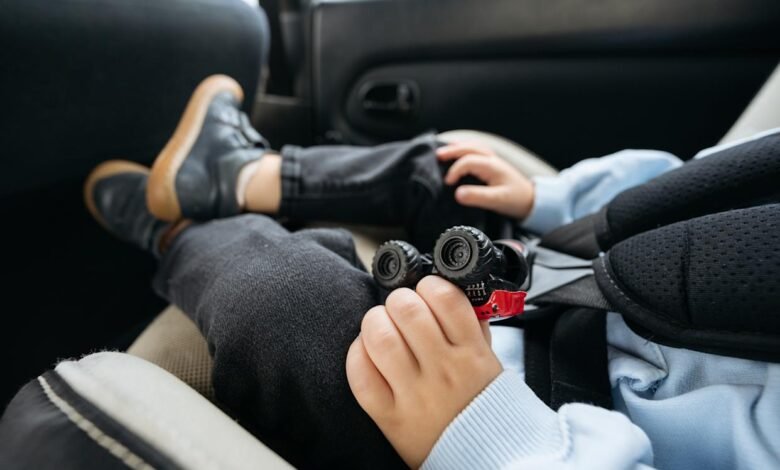Hot Car Deaths: How to Protect Your Children This Summer

The arrival of summer brings hot, sunny days. And the car is the one place where you feel the heat the most. For young children, a hot car can be uncomfortable and fatal.
Heatstroke claims the life of a child every nine days on average. According to data compiled by Kids and Car Safety, a nationwide nonprofit that advocates for child safety in and around vehicles, nearly 40 children die in hot cars every year. In the United States, overheating in a car has claimed the lives of over 1,000 children since 1990.
The National Highway Traffic Safety Administration (NHTSA) also stated that 39 children lost their lives in hot cars in 2024, compared to a record-breaking 53 in 2018 and 2019. For children aged 14 and under, heatstroke is the leading cause of death in vehicles, excluding auto accidents.
Causes of Hot Car Deaths
The caregiver neglected the child was in the car in over half of these deaths. Babysitters, parents, and relatives all think that they will never experience this.
The majority of the time, however, caregivers just forgot the child was in the vehicle. Distraction, stress, or a change in routine can all be factors.
Heatstroke occurs more frequently than you may imagine. The temperature inside a car can increase by up to 19 degrees in just ten minutes, even on a mild day.
Young children are especially vulnerable to heatstroke due to their smaller body surface area and higher metabolic rate. Compared to an adult, a child’s body heats up three to five times more quickly.
A child may experience organ damage, a coma, or even death if their body temperature exceeds 104 degrees Fahrenheit.
According to the AAA, caregivers who forget a child in their car are responsible for over 52% of recent hot car deaths. A caregiver purposefully leaving a child inside, possibly while running a quick errand, accounts for another 22%.
However, the most depressing statistic is that children who enter cars without an adult’s knowledge and become trapped inside account for nearly 25% of hot car deaths.
Why do parents forget their children in the car?
A psychology professor at the University of South Florida, Diamond, says that routine and habit cause parents to leave their children in overheating cars.
When people perform repetitive tasks almost instinctively or without conscious thought, the “habit brain memory system” takes over. The habit brain memory includes things like knowing how to tie shoelaces or ride a bike.
“You’re driving home from work, and you’ve done it hundreds of times by yourself.” You go from work to home without even thinking about it, thanks to the habit memory system in your brain. You take a direct drive home.
“The habit brain memory system can overwhelm that new addition to a routine they’ve done hundreds of times without the child,” Diamond said, even if parents are sure they’ll remember their child is in the back seat and needs to be dropped off somewhere before they get to the office.
He underlined that this is something that most people experience because it’s the way the brain works, not a “syndrome” or uncommon mental illness. It does not imply that the caregiver or parent does not care for their child.
Steps Parents Can Take to Avoid Forgetting Their Children in a Hot Car
The following will help parents and caregivers to remember that a child is in the car to avoid hot car deaths.
- Before you leave the car, place something you’ll need when you get there, like a cell phone, a pair of shoes, or an employee badge, in the back seat with your infant.
- To remind yourself that your child is in the car with you, keep a stuffed animal in their car seat and place it in the front of the vehicle while you drive.
- If you are expecting your child to arrive somewhere but they haven’t, ask your babysitter or child care provider to call you.
- Make sure your car is locked and check it before you leave, even if you’re in a hurry. It also addresses the second cause of children dying in hot cars, which is when they climb in unattended and unsupervised. This can help you make sure that no one is in the back seat.
Conclusion
Hot car deaths are not inevitable. They are entirely preventable. As the summer heat intensifies and families become busier with daily routines, the responsibility to protect children must remain a priority. Let us all adopt one simple rule: Look before you lock. A second glance could be the difference between life and tragedy.





